-
 +3 +1
+3 +1How Lower-Income Americans Get Cheated on Property Taxes
Many homeowners are paying a total of billions of dollars extra because of inequities in assessing property values.
-
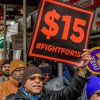 +14 +1
+14 +1Raising the minimum wage to $15 an hour won't hurt businesses. My company is proof.
We can afford to raise the minimum wage. As part of his administration's bold COVID-19 relief package, President Joe Biden has promised to raise the federal minimum wage to $15 an hour. The trickle-down approach to recovery championed by the previous administration failed our country and only led to further economic hardships for hard working Americans.
-
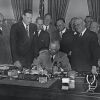 +22 +1
+22 +1Forget $15 an Hour — the Minimum Wage Should Be $24
The Coronavirus pandemic relief bill passed by the House of Representatives this week would raise the federal minimum wage in steps until it reached $15 an hour in 2025. But an increase in the minimum wage has been removed from the Senate’s legislation. At least for now, it is stuck at $7.25.
-
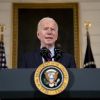 +12 +1
+12 +1Biden’s claim that with a $15 minimum wage, ‘the whole economy rises’
Biden is bullish on a big increase in the minimum wage, but economists are sharply divided on the impact on jobs.
-
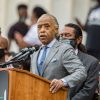 +10 +1
+10 +1The Conservative Case Against the Boomers
Everyone’s fed up with the baby boomers. Younger progressives charge them with a form of generational hoarding—of titles and power but mostly of money. The richest generation in the history of the world, the story goes, has squandered its wealth on vanity purchases and projects while leaving younger Americans with a debased environment and crazy levels of debt.
-
 +23 +1
+23 +1Eye-popping wage report charts 40 years of worsening income inequality as the top 1% thrive
Wage inequality is getting worse, according to new data from the Social Security Administration, which shows a steady trickle-up effect in worker income during every period for the last four decades. That’s happening as wages for the bottom 90% of earners are being “continuously redistributed upward” to the top 10% and often even further to the top 1% and 0.1%, reports the Economic Policy Institute, which analyzed the data. Since the year 1979, while wages for the bottom 90% saw a modest growth of 26%, wages for the top 10% grew between 51.8% to 75.1%.
-
 +13 +1
+13 +142% of people falling behind as Covid-19 widens the wealth gap, report finds
A report on financial security shows a widening divide between the haves and have-nots amid the coronavirus outbreak and economic crisis.
-
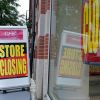 +27 +1
+27 +1Millions of Unemployed Americans Face Loss of Benefits at Year’s End
Two key programs Congress passed this year to expand and enhance unemployment insurance expire on Jan. 1, leaving millions of people without benefits unless lawmakers can break a monthslong deadlock over a fresh round of pandemic relief.
-
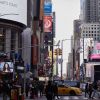 +6 +1
+6 +1Census: Median income hit record high in 2019 before the pandemic
Median US household income was $68,700 in 2019, the highest since 1967, the first year records were kept, according to inflation-adjusted data released by the Census Bureau on Tuesday.
-
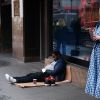 +2 +1
+2 +1Study: Inequality Robs $2.5 Trillion From U.S. Workers Each Year
Every few months, some group of socially conscious number crunchers will remind Americans that a tiny elite is binge-eating the nation’s economic pie while the rest of us plebeians fight over table scraps. Journalists will then aggregate eye-popping statistics and edifying charts, progressives will share these over social media, adorned with red-faced (and/or guillotine) emoji — and the moral arc of history will carry on bending toward neofeudalism.
-
 +12 +1
+12 +1Mortgage applications fall 1.8 percent from previous week
Mortgage applications around the country dropped 1.8 percent last week from a week earlier even though rates tumbled to a new low, a new national report from the Mortgage Bankers Association said Wednesday.
-
 +3 +1
+3 +1Would You Rather Be Born Smart or Rich?
I know, I know, you'd rather be born smart and rich (and charming, and with a lustrous head of hair, and a voice like Michael Bolton's). But if you had to choose? Chances are, your answer depends on whether you think the U.S. economy is a meritocracy—that intelligence and ambition are more important to lifelong success than the circumstances of your birth.
-
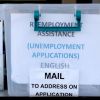 +9 +1
+9 +11 in 4 American workers have filed for unemployment benefits during the pandemic
More than 40 million Americans have filed for first-time unemployment benefits since the coronavirus pandemic forced the US economy to shut down in March. One in four American workers has filed for unemployment insurance.
-
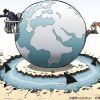 +11 +1
+11 +1Sustainability? We are Blaming the Poor for the Wrongs of the Rich
Don’t be fooled by the unfounded, Malthusian belief that overpopulation is the roots of all evils when it comes to sustainability. Population growth is just one of many issues that we should keep an eye on – for sure – but it would be an unforgivable mistake – and a racist one – to give it our undivided attention.
-
 +12 +1
+12 +1The financial risk to U.S. business owners posed by COVID-19 outbreak varies by demographic group
The economic fallout from the COVID-19 outbreak has put the jobs of many American workers in jeopardy, but it has also put in doubt the economic fortunes of many of the business owners who employ them. More than four-in-ten U.S. businesses with paid employees – 2.4 million out of the 5.3 million examined – operate in higher-risk industries likely to be affected more deeply by the COVID-19 outbreak, according to a Pew Research Center analysis of...
-
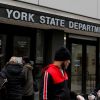 +32 +1
+32 +13.3 Million File For Unemployment Claims, Shattering The Record
A record 3.28 million Americans filed for unemployment benefits last week as the coronavirus pandemic shut down much of the country. The Labor Department's report Thursday was one of the first official indicators of how many people have suddenly been forced out of work nationally.
-
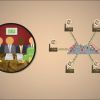 +4 +1
+4 +1Can We Do It Ourselves?
Can We Do It Ourselves focuses on economic philosophy with an emphasis on the concept of economic democracy. The film helps viewers understand the difference between a market economy in which consumer demand drives a company's supply of goods and services, and a capitalist economy in which private owners control production and hold a right to the profits. There is strong support for the potential promise of a democratic economic model in which workers have more of a say in business operations than either market or capitalist models.
-
 +20 +1
+20 +1Transgender Americans are more likely to be unemployed and poor
The United States Supreme Court will issue a ruling this year in a landmark case that will determine whether transgender people – individuals whose sex assigned at birth does not match their current innate sense of being male, female, both or neither – are protected by federal law from employment discrimination. At stake is whether transgender individuals can reasonably earn a living without fear of losing their jobs simply because they are transgender.
-
 +11 +1
+11 +1The staggering amount of wealth held by the Forbes 400 more than doubled over the last decade. But their tax rates actually dropped.
The share of wealth held by the Forbes 400 more than doubled from $1.27 trillion in 2009 to nearly $3 trillion this year. That marks a significant increase encouraged by a combination of sliding tax rates, stock market growth, and the economic recovery, according to Gabriel Zucman, an economist at the University of California, Berkeley.
-
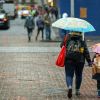 +2 +1
+2 +1Kids Raised in Walkable Cities Earn More Money As Adults
The benefits of walkable neighborhoods are many and varied. People who live in walkable neighborhoods are more active, healthier, have more time to spend with family and friends, and report higher levels of happiness and subjective well-being.
Submit a link
Start a discussion




















